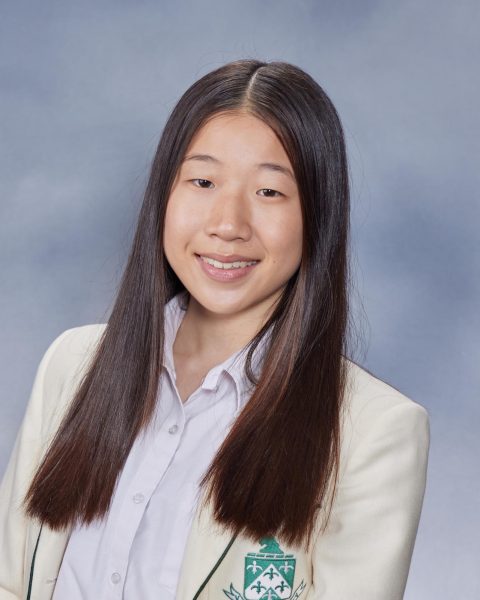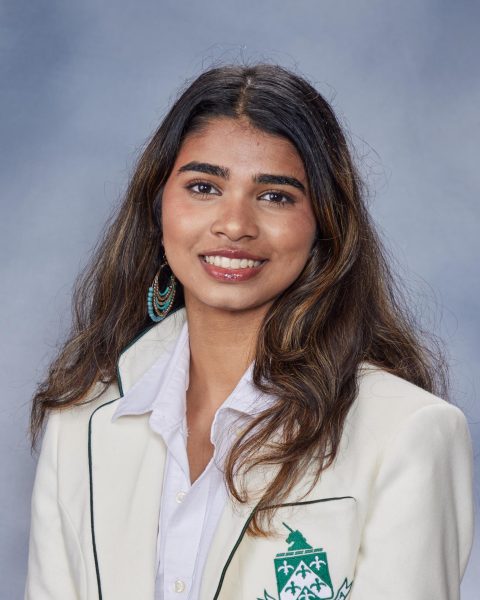Stepping into a new era
November 10, 2022
Throughout its 110-year history, Hockaday has evolved with the times. As the school reevaluates what it means to be a Hockaday student and the aspects that are intrinsic to Hockaday culture, the new year is bringing modifications to seniority, college culture and curriculum.
SENIORITY
Starting this year, seniors will serve not only as the social leaders of the school but also as mentors and advisors to younger students. As supposed to previous years, Deans are putting more of an emphasis on seniors needing to earn their privileges through demonstrating leadership and responsibility rather than getting them by default.
“Hockaday’s trying to make seniority less of a big scary thing,” Form IV President Elle Chavis said. “When I was a freshman, we were terrified of the seniors. I remember I wore a college sweatshirt, and my Big Sis texted me that some of her friends saw me in a college sweatshirt and to not do that again. I had absolutely no clue that was a rule.”
The school is striving to make seniors more approachable while also maintaining their leadership role. In previous years, for example, seniors thought that there was an unwritten rule that they were allowed to cut lunch lines, which has now been prohibited. However, the new staggered lunch line allows seniors to be the first to get their lunch, allowing them to be respected without tearing down the underclassmen.
“They’re trying to make seniors more like the emotional leaders and people you can look up to,” Chavis said.
Chavis said the seniors have done a good job balancing being authoritative while still being respectful.
While serving as social-emotional leaders is part of what senior year entails, seniors also look forward to their traditions and privileges. Each year, seniors enjoy some special traditions including white blazers, class rings, access to the senior commons and splash day.
“I loved participating in splash day and getting dunked on by the seniors last year, so I’m very excited for this year,” Chavis said.
She said she is looking forward to seniors celebrating each other and enjoying each other’s company in her last remaining year.
“I’m super excited once everyone starts to, you know, ring the bell to figure out where they’re going to college and post their letters in the senior commons,” Chavis said. “I think that’s such a great way to kind of celebrate everyone and have one last hurrah of sisterhood.”
MENTAL HEALTH AND COLLEGE APP SEASON
Navigating the college admissions process can be a confusing and arduous task for seniors. The hustle and bustle of the fall semester means added stress, especially for those applying to universities.
“I think October is probably the hardest month for all students,” Upper School Dean Jordan Innerarity said. “You have the Nov. 1 deadline for seniors, plus your own personal stressors – your parents and your friends are all talking about college. Every instance of conversation about college is incredibly stress-inducing, so we’re finding ways to alleviate stress.”
One way the school is combating the stress of college admissions is by changing the way acceptance letters are posted in the senior commons. In previous years, seniors posted their college acceptance letters from every school that they were accepted to on the windows of the commons, facing out for passers-by to see.
“In the past, there have been some hurt feelings about comments made or comments assumed about colleges,” Innerarity said. “It is a very sensitive topic.”
The class of 2023 voted to post letters facing the senior commons rather than facing out.
“This was done in a way to protect a lot of people and to allow them to feel whatever they want to feel about colleges, but also to keep their special rights,” Innerarity said. “Seniors can still ring the bell and share their accomplishments with everyone.”
Another change for this year was eliminating the option to access the Maia Learning scattograms for juniors and seniors. Class of 2022 due to not being able to fully represent what test optional looks like in the graphs, had this feature taken away.
The purpose of these are to see where you are in a graph of other Hockaday students who previously have gotten into a school. You can see where your staderdized test score and GPA line up with those who were accepted, rejected, deferred or waitlisted. Now students can ask their college counselor to pull up the chart to look at but do not have personal access.
Additionally, the College Admissions Period, introduced in 2019, lets seniors take advantage of school hours to work on college applications instead of having to do it all at home.
“It takes hours to do some of these applications because each one has its own supplemental essays and more,” Innerarity said. “These are things that you have to pour a lot of time into, on top of keeping up with your course schedule. That’s why we implemented the CAP period, a free period where they can just work on their college essays.”
Innerarity said there are two Upper School counselors who are great resources to help seniors feeling the stress of the admissions process.
“Some steps we’re taking are just having open conversations about where we are,” Innerarity said. “It’s OK not to be OK and to have these feelings.”
CURRICULUM CHANGES
As the school year commenced, students had the chance to take courses never offered before. Some changes included the addition of social impact classes, new courses like the writing internship and an array of new history courses.
Juniors previously chose between AP and regular U.S. History. This year, however, juniors who do not want to take APUSH yet still want to be challenged can choose one of two other year-long Honors Seminars: American Foreign Policy and International Relations with Lucio Benedetto or Law in American Society with Scott Bowman.
“The Honors Seminars were a way to move away from just offering AP and being able to offer U.S. history through different lenses,” History Department Chair Kathryn Hodgkinson said.
Hodgkinson said the courses were developed based on the teachers’ specialties and help students learn aspects of history that may not be covered in other classes. Dr. Wesley Lummus, for example, developed a new Middle East course and Dr. Elizabeth Bennett is developing an on-level social impact course focused on local and U.S. history.
Hodgkinson said the new courses have been well- received.
“It is great to have a whole class of girls that are interested in the same thing because they are more actively participating in class with courses that hit on their interest – it’s giving them another venue instead of just the straight seminar in U.S. history,” Hodgkinson said.







